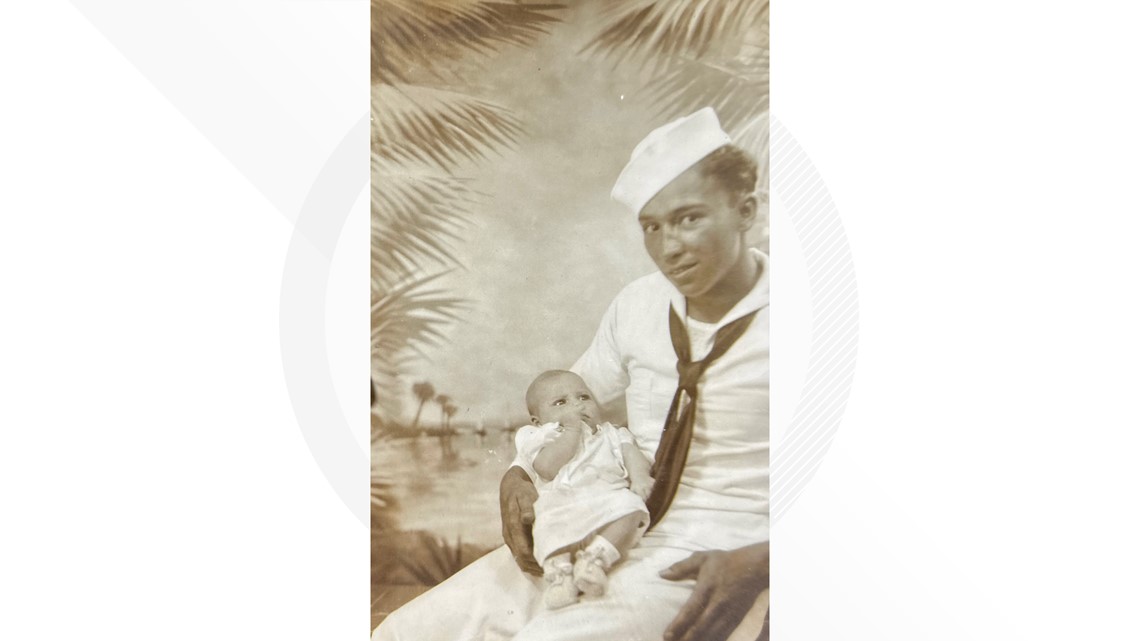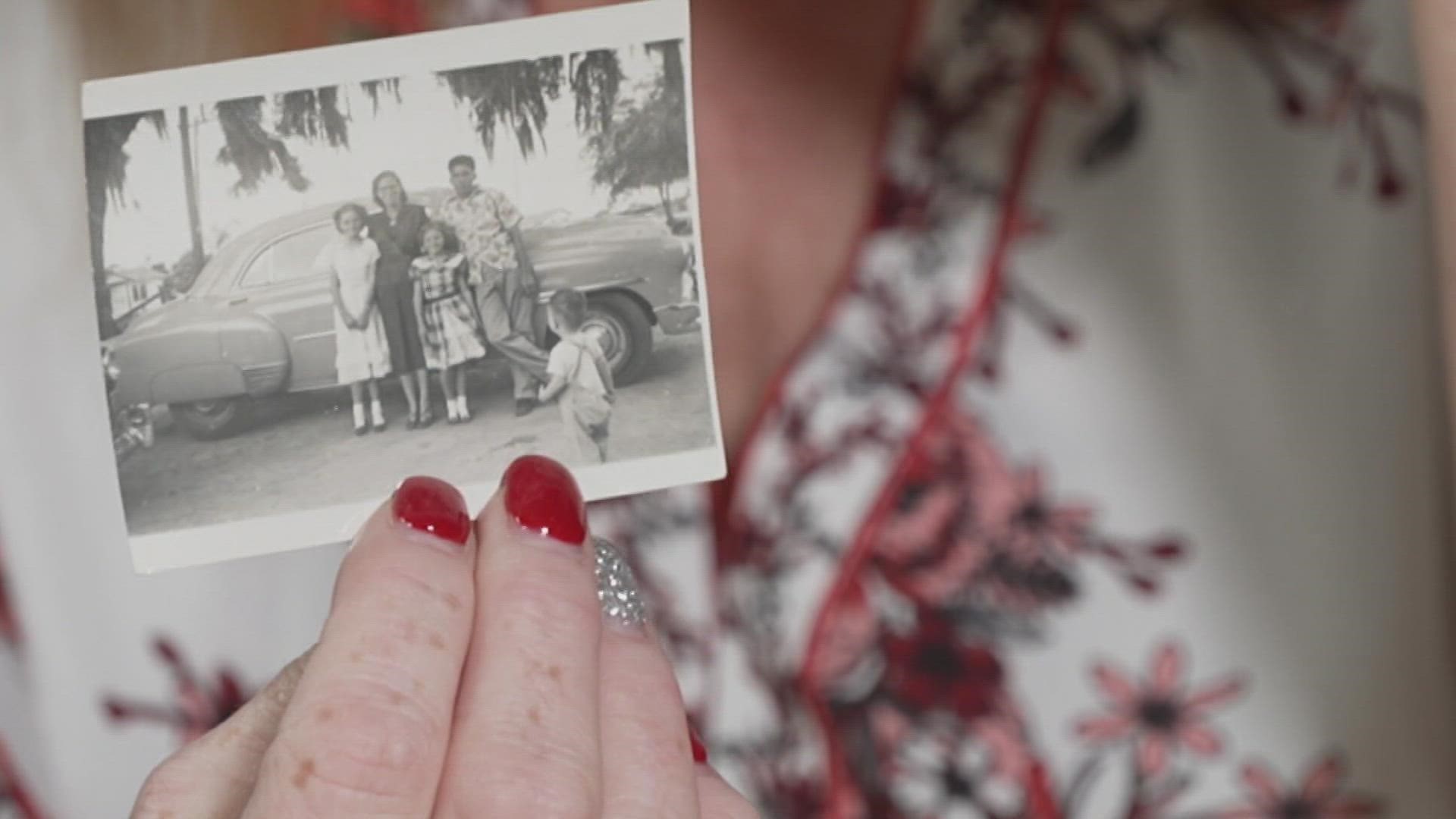KNOXVILLE, Tenn. — Shot down. Captured. Killed. Forgotten.
Symbolic tattoos cover the right arm of Terri Mumley depicting the story of her grandfather and the day his plane was shot from the sky during the war in Korea.
The tattoo is of a Navy plane, Air Medal, and anchor. Near her shoulder, the haunting POW/MIA symbol. All pay tribute to the service of Lloyd Smith, Jr. memorialized on her skin but left off a new memorial wall in Washington.
“The government has let us down,” said Mumley, an Army veteran herself, and among almost a dozen families who have spent decades fighting to have the Navy and Department of Defense recognize the loss of her grandfather and 10 other military men on the official list of missing or killed in action in the war in Korea. None of their names appear on the new Korean War Veterans Memorial Wall of Remembrance in Washington, D.C.
“Deny until they all die. And that's how we all feel that they just continue to deny what you know, was laid in front of them until none of us are left.”
SHOT DOWN
On Jan. 18, 1953, Lloyd Smith, Jr. was serving as a machinist mate aboard a Navy reconnaissance plane. Military records show it was shot down during a mission off the coast of China in an “enemy action.” A U.S. Coast Guard plane was dispatched on the rescue. It, too, crashed into the sea. In all, 11 Americans were listed as killed or missing. In a letter from the Navy, more than two years later, commanders offered comforting words to the Smith's widow asking her to take solace in knowing, “…he died serving his country courageously.”


CAPTURED
In pouring through records and witness accounts, Terri Mumley believes her grandfather survived the initial shoot-down in the Formosa straits.
“He was in the water. He had his life vest on. Another gentleman was trying to get his life vest… and they were last seen floating toward shore,” said Mumley.
KILLED
“About a week later, there are reports that two 'fliers' were taken prisoner and used in an anti-American parade,” said Mumley.
From all she has read, heard, and photos she has seen, she believes her grandfather was killed and buried in an unmarked grave in China. Lloyd Smith, Jr. would have been 30 years old. He had served in World War II.
Days before he was lost on a mission, the Navy decorated him with an award for heroism. He loved baseball, but the most important people in his life were his wife and two little girls ages 9 and 12.
The family has his last letter home. It arrived the day after he was shot down. It describes the weather, a “special” crew, and notes, “…what we see or do is for the eyes of ours and info for the commanders only.” The letter closes with a request, “I can also stand some more pictures of the family if you will…and take care of my girls.”
FORGOTTEN
70 years after the shootdown and harrowing rescue attempt during the war in Korea, the Navy and Department of Defense have so far refused to add Lloyd Smith, Jr. or the other names to the official list of American veterans missing or killed in action.
“We just feel like he’s been lost,” said Terri Mumley about her grandfather.
The family said for years representatives from the Navy and the Department of Defense have cited the location of the shootdown the reason those military men are carried as “Cold War” losses instead of “Korean War” losses.
In an email this week to WBIR-TV, a spokesperson from the Department of Defense affirms that explanation noting, “Available records indicate that the loss occurred just south of Taiwan near the Chinese Coast.” It's a location outside the defined “combat zone.”
But in a letter from Navy commanders 70 years ago, they write specifically that Lloyd Smith, Jr. was shot down in an “enemy action” during the war in Korea.
In the same email exchange with the Department of Defense this week, the spokesperson goes on to write Lloyd Smith, Jr. has “never been listed as a Korean War casualty.”
But a U.S. Government National Archive database site clearly lists the death of that Navy veteran as the result of “combat duty in the Korean War.”
Those are just a couple examples in a long list of contradictions and frustrations Terri Mumley says she and the other families of military men lost that day have faced for decades.
“I just want my grandfather’s name on the wall…it’s that simple.”
Congressman Tim Burchett expressed support for the effort by Terri Mumley to see her grandfather added to the memorial wall. The representative from East Tennessee sent a letter this week to her noting a review board is taking another look at the case and is expected to issue a ruling by the end of January.

